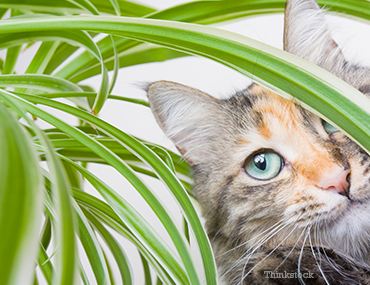The inquisitive nature of our four-legged family members that makes them so adorable can also increase their chances of getting exposed to the plethora of toxins in our environment.
Even foods that seem so benign and seemingly healthy to us can be deadly to our pets. For example, grapes and raisins can cause severe kidney damage in dogs. Chewing gums and other sugar-free products containing xylitol can cause a drop in blood sugar levels and liver damage.
It is not uncommon for cats to want to explore, sniff and sometimes take a bite of a new plant that is brought as a well-intended gift, but some plants can be deadly to our pets. Being exposed to a small amount of pollen from lilies can cause fatal kidney failure in cats.
Small amounts of some innocuous medications can be toxic to pets, for example, creams containing vitamin D can cause severe metabolic disturbances even when licked off their owners’ hands.
There are of course the more obvious and better-known toxins like alcohol, chocolate, rat baits, snail baits, etc.
If your pet has been exposed to something that you are not sure if it is safe or not there are several useful resources. ASPCA website has a database of toxic and non-toxic plants, that can also help to plan what plants are safe to have. Identification of some toxins can be hard, especially mushrooms which come in a variety of shapes and toxicities ranging from benign to some causing organ failure. There are Facebook groups that can help with the identification of plants and mushrooms when provided with diagnostic quality pictures.
When your pet is exposed to something potentially toxic like a medication or a plant, it is very important to document the substance and the amount ingested. Photographs are great for this.
Not every toxin is treated in the same manner, for some toxin exposures induction of vomiting is actually contraindicated.
When in doubt ASPCA animal poison control hotline 888-426-4435 should be contacted, the veterinary toxicologist at the ASPCA can help guide the appropriate treatment for your pet.

